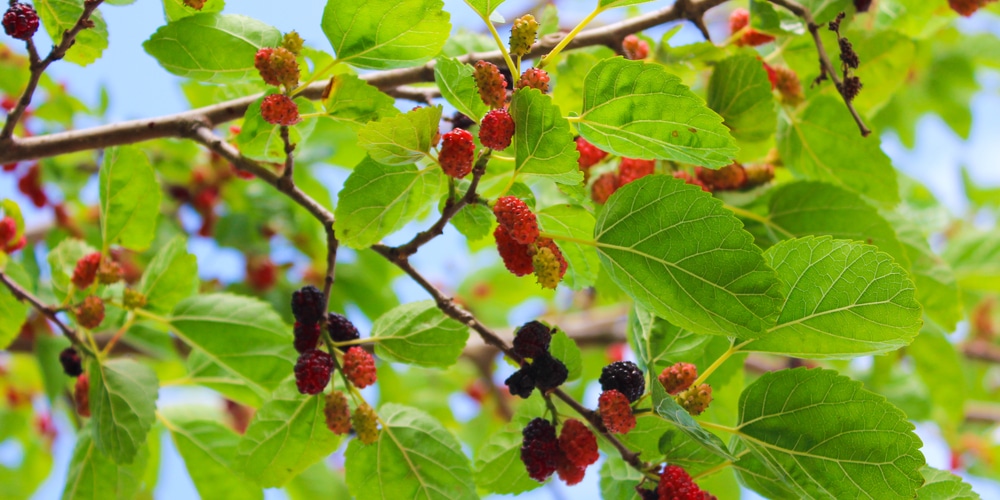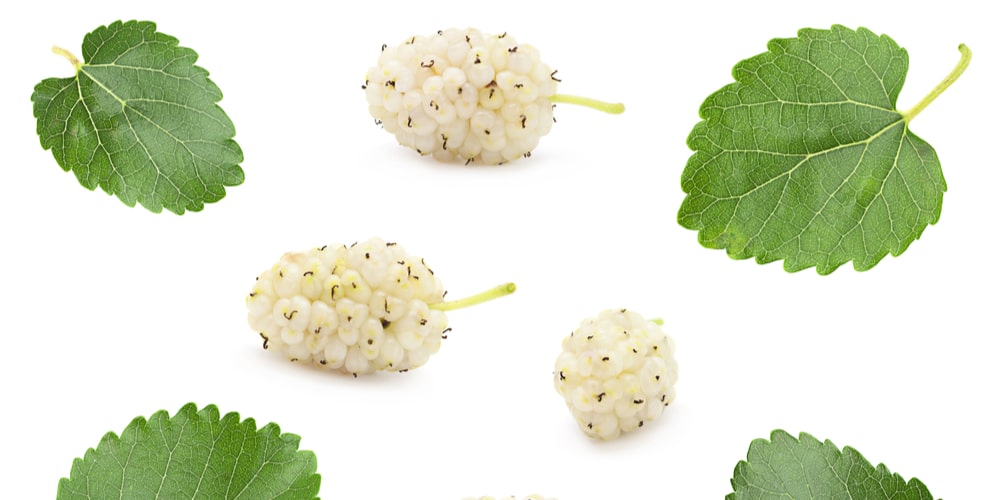Mulberry trees are mammoth plants that sprout delicious fruit. They might compliment your garden scenery, but can mulberry trees survive the Arizona heat? Even more so, are these trees even legal in Arizona?
What is a Mulberry Tree?
Mulberry trees are native to Asian and North American countries. In places like Japan and China, people grow these plants as food for silkworms, while in the US, these trees primarily serve as decoration.
People named the mulberry tree after the fruit it bears, mulberries. These berries closely resemble blackberries in appearance and taste. They come in colors varying from red to dark purple.
Can You Eat Fruit From a Mulberry Tree?
Each species of mulberry tree produces a different type of mulberry. White mulberries are native to China, red mulberries come from the United States, and black mulberries grow in Western Asia. Not all of these fruits are safe for human consumption.
White or unripe mulberries are toxic for people. White mulberry trees contain poisonous sap, which leads to symptoms like:
- Upset stomach
- Heightened nervous system
- Hallucinations
Humans can safely consume red and black mulberries. These fruits may have certain nutritional benefits because they are rich in vitamin C.
Are Mulberry Trees Illegal in Arizona?
Mulberry trees are controversial in numerous states in the U.S., including Arizona. Several cities like Phoenix have even banned planting new mulberry trees, linking them to severe allergy attacks.
However, Arizona has not outlawed mulberry trees, and these plants can flourish in this warm climate. Your ability to grow the tree depends on the city you reside.
Pros and Cons of Growing Mulberry Trees in Arizona
While mulberry trees might garner a lousy reputation in Arizona, some gardeners still choose to plant them for various reasons. Listed below are a few pros and cons of mulberry trees to help you decide if they are the right fit for your lawn.
Pro: Low Maintenance
Of all the fruit-bearing plants, mulberry trees are one of the most low-maintenance options. They grow well for seasoned gardeners and those who do not have a green thumb.
When planting the tree, fertilize the surrounding soil with nutrient-rich mulch. These trees need only about an inch of water each week through rainfall or a hose. Prune the tree about once a year to maintain its shape.
Pro: Produces Fruit
If you plant a fruit-bearing mulberry tree, it produces delicious berries each summer. Mulberries taste similar to blackberries, both sweet and tart. These berries are incredibly juicy, too. You can make many dishes with this fruit like jam, pie, cake, and more.
These mulberries are also a nutritious treat for native wildlife in your area because of their high vitamin content.
Con: Makes a Mess
Mulberries taste refreshing because of their juicy flavor, but this juice also means staining. If you plant a fruit-bearing mulberry tree, prepare for stained hands and a berry-splattered lawn.
Even if you plant your mulberry tree away from outdoor furniture, sidewalks, critters, and birds, make sure to stain these places, too.
Con: High Pollen Count
One of the most significant downsides to mulberry trees is their high pollen count. Pollen is the reason why many cities in Arizona ban this plant. If you have allergies, mulberry trees will trigger intense reactions.
Male mulberry trees produce the most pollen since they only flower. Female mulberry trees create less pollen and bear fruit, but they can still cause allergy problems.
Should You Plant Mulberry Trees in Arizona?
Before you spend money on a mulberry tree, make sure your city has not banned them. Growing a mulberry tree against your area’s law subjects you to possible fines or other consequences.
While mulberry trees produce delicious fruit, this comes at the cost of a messy lawn and possible allergic reactions. Allergy sufferers, this may not be the right tree for you. If you already have a mulberry tree in your yard you may want to kill it.

